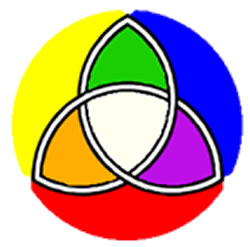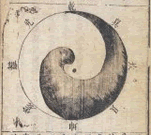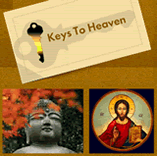New Thought June Celebration incorporates Solstice
New Thought June Celebration began June 18th, concludes June 26th. It incorporates June Solstice. A time of renewing relationships and affirming committments.
'New Thought is universal in its ideals and therefore should be universal in its appeal...it should grow ...until it embraces ... the whole world.' ~ New Thought Day, August 23rd, 1915.
CHACO CANYON, NEW MEXICO, USA, June 20, 2014 /EINPresswire.com/ -- New Thought June Celebration incorporates June Solstice running from June 18th to June 26th. This at time of renewing relationships and committments to community. Every culture has festivals to honor this day and there have been numerous monuments around the globe to commemorate this time. In the Northern Hemisphere, which contains the Goseck Circle in Germany, Chaco Canyon in New Mexico, Chichen Itza, in Mexico, and Stone Henge ih England, among other Sacred Solstice monuments, this a summer celebration. In the Southern hemisphere, there are ancient solar observatories in Cerro del Gentil & the Towers of Chankillo in Peru, this is a winter celebration. — James A. Edgerton
A wonderful set of cards commemorating this New Thought Holiday and others were released at the 2014 New Thought Conference in Edmonton, Canada. (www.NewThoughtCanada.org) In addition to a card celebrating New Thought Day (www.NewThoughtDay.org) which occurs on August 23rd and Christian New Thought Day (www.ChristianNewThoughtDay.org) which falls on the 1st Sunday in March.
There are five major New Thought Celebrations. The largest is the Thanksgiving Season which encompasses October and November. The others are: New Thought March Celebration which is from the 18th to the 26th of March. New Thought June Celebration which is from June 18th to the 26th of June. New Thought September Celebration which is from September 18th to the 26th of September. New Thought December Celebration is from December 18th to the 26th of December.
March, June, September and December New Thought Celebrations are 8 days long. Participants have been known to play the Beatles song 8 Days a week, along with songs by various New Thought Musicians such as Amy Bishop and Carrie Day.
The New Thought movement is a spiritual movement that celebrates both science and spirituality. Standing in contrast to solely faith based religions, New Thought is sometimes referred to as: New Thought / Ancient Wisdom. This is because New Thought espouses Universal Principles celebrated within the world's Ancient Wisdom Teaching, and verified by the latest scientific breakthroughs. Whereas some faiths rely solely on faith, New Thought espouses the verification of any spiritual principles through the scientific method. Thus the mind-body connection which is part of integrated medicine today is tested regularly by New Thought practitioners.
In contrast with New Age Adherents whose beliefs might combine alien lore with spiritualistic beliefs in ghosts and other entitites, the inclusion of crystals, astrologies of various kinds, as well as pseudo sciences. New Thought eschews decadent beliefs to focus on the power of the mind in concert with Universal Principles which can be unveiled through physics, mathematics, genetics and other bio-sciences.
New Thought adherents around the globe are encouraged to celebrate New Thought June Celebration which includes the Summer Solstice and a week of days and nights to share their insights. http://FellowshipOfSpirit.co/
Forms of New Thought include:
A. ~ "Mental Science" describes a form of New Thought that focuses solely upon mind training to manifest personal evolution. Mental Science adherents are sometimes, if not often agnostic, or atheist, believing that all transformation originates within the individual mind without reliance upon any greater mind. For the Mental Scientist, Universal Principles are found within the biochemical processes held in common with all thinking individuals. These principles are physical but enable transcendence through mastery of the mind and body.
B. ~ "Divine Science" is a term that describes the form of New Thought which proposes: “limitless Being, God [Good] is equally present everywhere”. Divine Science propounds that "evil" is a human created phenomenon and that as individuals awaken to the truth of their "atonement" [oneness with the Divine], they act in alignment with highest good for all beings. http://DivineScience.com/ Mary Baker Eddy, who opposed the New Thought movement, wrote a book about Divine Science and Science of Mind called Rudimentary Divine Science. http://DivineScience.net/texts/divine-science-by-eddy.html This book was written largely to co-opt early New Thought leaders who were using these terms to describe New Thought Forms. Mary Baker Eddy created her own religion which was known as Christian Science, but in contrast to New Thought, Christian Science does not embrace medicine or science.
C. ~ "Science of Mind" is a term used by various early New Thought writers including William Atkinson and Emma Curtis Hopkins to describe a form of New Thought which combines the latest scientific breakthroughs with the finest in Ancient Wisdom traditions while propounding the belief in a responsive Universal Energy. John Bascom, (May 1, 1827 – October 2, 1911) the author of the first Science of Mind (1881) was one of the early proponents of "Spiritual Evolution" which postulates that underlying all material evolution is an energetic or "spiritual" evolution which can be described mathematically. http://en.wikipedia.org/wiki/John_Bascom Bascom's body of work, including his book Natural Theology was instrumental in the further development of the New Thought form known as Science of Mind. Ernest Holmes, a champion of this New Thought Form, wrote his version of Science of Mind in 1927 building upon a long established 19th Century New Thought tradition. Ernest Holmes called his version of New Thought: "Religious Science" and founded the Religious Science Institute in Los Angeles. http://ScienceOfMind.us
D. ~ Other forms of New Thought are rooted within and emphasize various Ancient Wisdom traditions such as Buddhism, Taoism, or more commonly Abrahamic traditions. Thus certain forms of New Thought might be called Christian New Thought, some Buddhist New Thought, and still others Indigenous New Thought. These forms espouse the same underlying Universal New Thought Principles while making primary reference to Ancient Wisdom teachings within their own cultures which illuminate these priniciples. http://DivineTao.com
New Thought History is experiencing a revolution through the work of many wonderful New Thought Leaders who have joined together to work through the Digital Collection assembled in www.NewThoughtLibrary.com This collection is expanding every year with more and more important works being added.
Today, around the globe, more and more citizens are affirming their adherence to New Thought. Rev. Dr. Spottiswoode stated: "As more New Thought leaders work together through the Universal New Thought Network (www.NewThought.net) soon 10% of the world will declare themselves to be adherents of New Thought. Of course, it is important to realize that the movement has always been and always will be creating more New Thoughts and thus more New Groups. Thus uniformity is not only impossible but in fact undesirable. Look at the history of all other great religions, none of those spiritual paths remained uniform and homogenous. They all have their splits which reflect the process of spiritual evolution. The essence of New Thought is not the replication of old thought, uniformity of thought, or the forced reunification of long separated organizations. The essence of New Thought is found within the quite revolutionary concept of self actualization and self expression. Since no two people are exactly alike and there are vast cultural differences throughout that world, it follows there will be vast differences in approach, method and support of the Universal Principles which undergird New Thought. So long as we keep in mind that the basic principle of our movement is: 'As we change our thinking, we change our lives' and we continue to advocate the Universal Declaration of Human Rights as an essential component of 21st Century New Thought, New Thought will grow into a major movement." ~ New Thought Today
In 1958, Ernest Holmes said: "We have launched a Movement which, in the next 100 years, will be the great new religious impulsion of modern times, far exceeding, in its capacity to envelop the world, anything that has happened since Mohammedanism started."
Holmes was echoing or rephrasing early New Thought Alliance President James A. Edgerton who said: "The truth, once announced, has the power not only to renew but to extend itself. New Thought is universal in its ideals and therefore should be universal in its appeal. Under the guidance of the spirit, it should grow in good works until it embraces many lands and eventually the whole world.' ~ New Thought Day, August 23rd, 1915." (http://NewThoughtDay.org
"Of course in this instance, as in so many others, Ernest did not give credit. But one must keep in mind that unlike his brother Fenwicke Holmes who wrote many of the early Science of Mind books, Ernest did not have any formal education and thus may not have known how to do a citation. Today, Ernest is often referred to as Dr. Ernest Holmes, but it is seldom noted that this title was an honorary title. Ernest never earned an actual doctorate from an accredited university. In fact, these days, the use of this honorific probably does more to alienate those who would benefit the most from his work than to encourage them. This along with the removal of credit to his female co-writer, Maude Allison Lathem, from what is considered his most important book has not served his legacy well. It should be noted that citations were not commonly used in early New Thought books, just as they are not often used in spiritual books today. With the exception of those spiritual leaders who do not seem to be able to form original New Thoughts of their own, the majority of spiritual texts do not seem to use a lot of citations. Today's prose works that have a large number of citations are often adaptations of a thesis or dissertation and as such sometimes reflect the insecurity of these leaders in relating their personal insights. " ~ New Thought Today
This wonderful holiday: New Thought June Celebration is an opportunity to join together with people around the world every year for 8 days: from June 18th to June 26th annually.
Learn more about New Thought at www.NewThought.info
Rev. Dr. Steve Walling
Universal New Thought Network
505-216-6397
email us here



